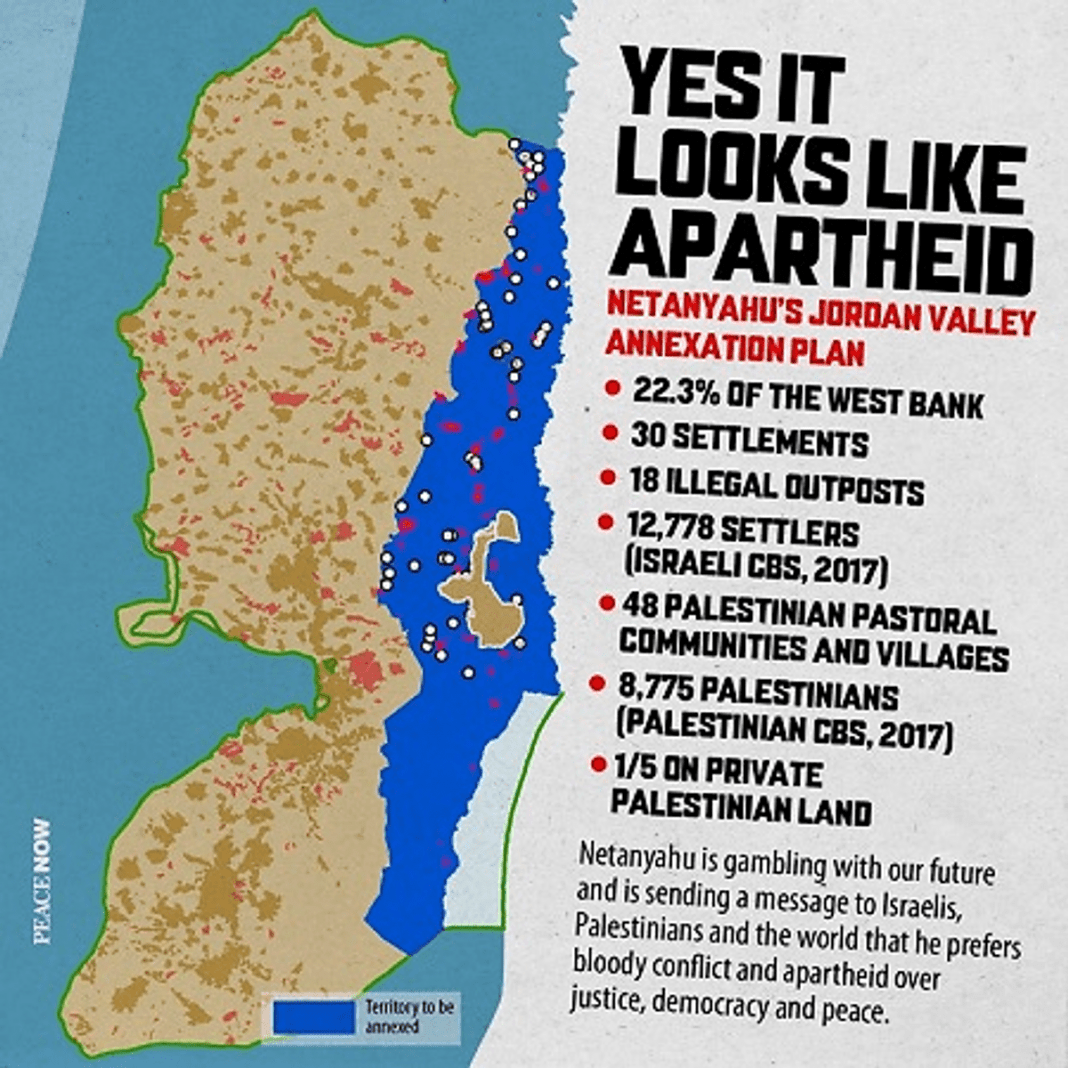If Israel presses ahead with annexations in the occupied West Bank, it risks undermining improved ties with key Arab states and alienating European powers, but the real diplomatic costs remain uncertain, experts said. Israeli annexation plans may pose troublesome consequences for not only Palestinians but for Israel’s diplomatic ties, and its national reputation as well.
The possible scope of international backlash against the Jewish state is unclear, as it is not yet known what action Israel plans to take towards implementing a US-proposed Middle East peace plan in the coming days.
Israeli annexation plans: US proposals and vested interests
Prime Minister Benjamin Netanyahu’s government set July 1 as the date it could initiate action on US President Donald Trump’s proposals, which pave the way for annexing West Bank territory, including Jewish settlements considered illegal under international law.
Annexation is just one part of Trump’s plan, which also calls for the creation of a demilitarised Palestinian state, largely encircled by Israel, with a capital outside of Jerusalem — terms roundly rejected by the Palestinians.
Read More: US continues to support Israel expansionist annexation policy
The Trump administration has stopped short of giving Israel its full-throated green light for annexations, with Secretary of State Mike Pompeo saying that decisions on the next steps are Israel’s to make. Ahead of the July 1 possible kick-off date, Netanyahu’s coalition — which includes annexation sceptics — is weighing the price of moving forward.
Israeli-Arab ties threatened by plans to annex West Bank
In a rare op-ed in an Israeli newspaper, the Emirati ambassador to Washington, Yousef al-Otaiba, warned earlier in June that annexation of parts of the West Bank would jeopardise any warming of Arab-Israeli ties. Describing it as the “illegal seizure of Palestinian land”, Otaiba said, “plans for annexation and talk of normalisation are a contradiction”.
Read more: Israel annexation of West Bank opposed by UAE
Yoel Guzansky, a senior fellow at Tel Aviv University’s Institute for National Security Studies, told AFP the severity of the response in the Gulf depends “on what Israel actually does, and the Palestinian reaction”.If there is substantial Palestinian violence in response to an announcement, “we’ll see a harsher reaction” in the Gulf, he said.
Gulf leaders “can’t turn their back to the Palestinians — they have a public opinion to consider,” he said, adding Arab leaders could suffer “if they appear to be not only abandoning the Palestinian cause but collaborating with Israel.”
But Guzanky stressed there are two levels of Israeli-Gulf cooperation: discreet links that generally involve security, and public deals, including on commercial interests. Regardless of any annexation steps, “I don’t think the secret intelligent cooperation will cease,” Guzansky said, noting that common foe Iran “isn’t going anywhere”.
An announcement last week that private Emirati and Israeli companies intend to join forces to fight the novel coronavirus pandemic could be the type of deal that is rolled back, he explained.
Read more: Coronavirus allows UAE to extend hand of friendship to Israel
Writing in Friday’s Yediot Ahronot, Yousef al-Otaiba, the Emirates’ ambassador to the United States, appealed directly to Israelis in Hebrew to deter Prime Minister Benjamin Netanyahu from following through on his promise to annex occupied territory as early as next month.
“It’s Either Annexation or Normalization,” the headline over his op-ed declared.
The article rebutted an argument by Mr. Netanyahu that annexing West Bank land that the Palestinians have counted on for a state would not imperil Israel’s chances of forging deeper relations with countries like the Emirates and Saudi Arabia.
EU is critical of Israeli annexation plans, but is unable to stop it
The EU, Israel’s top economic partner, has in recent weeks mounted a diplomatic campaign against annexation, highlighted by a visit to Jerusalem by German Foreign Minister Heiko Maas to raise concern about the prospective plans. But the bloc cannot threaten Israel with formal sanctions, as those require unanimous support among members.
https://twitter.com/PalestinePlay/status/1277207937136680961
Austria and Hungary have already refused to condemn Israel over prospective annexation, while the leaders of Greece and Cyprus were in the Jewish state earlier this month for talks on energy cooperation.
Aside from formal sanctions, the EU could curtail other areas of cooperation with Israel, actions that would not require unanimous member-state support. But a European diplomat said that any response against Israel will be weighed against the possible loss of access to Israeli technology, including related to security, which is highly valued by some EU members.
“We need the Israelis, but not the Palestinians,” said the diplomat on condition of anonymity.
To annex or not to annex, that is the question
A senior correspondent with Israel’s left-wing Haaretz newspaper Chaim Levinson stressed that speculation about diplomatic fallout is premature, as Israel may in fact take no action on Trump’s plan, or may announce a symbolic gesture with no impact on the ground.
UN rights chief calls Israeli annexation plans ‘illegal’ https://t.co/5LsJk9LVJ8
— Israel Headline News (@IsraelHeadlines) June 29, 2020
“I think it is too early to determine what will happen in the end, because no one knows what will happen in the beginning,” he said on the paper’s weekly podcast.
AFP with additional input by GVS News Desk
What are your views on this? Share with us in the comments bar below.














